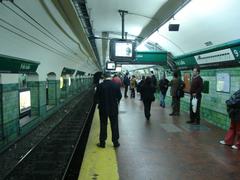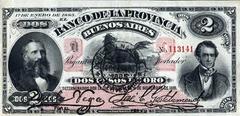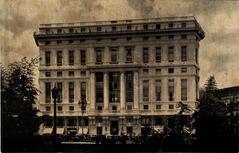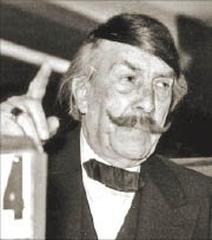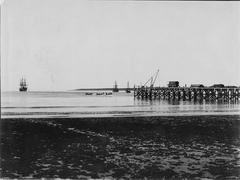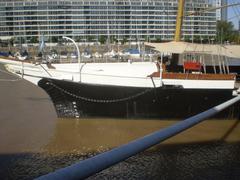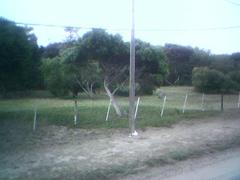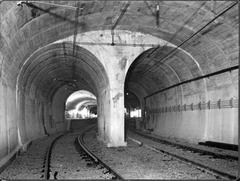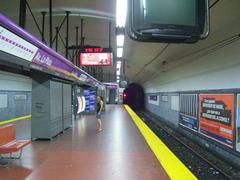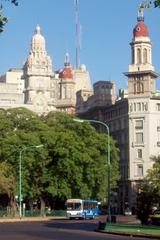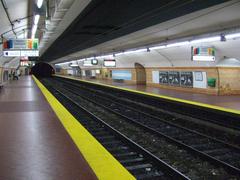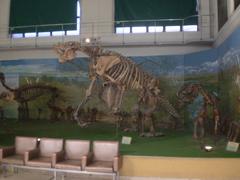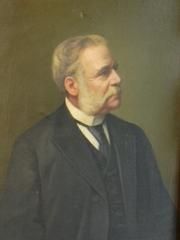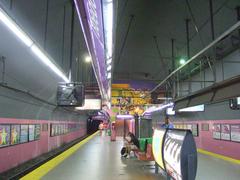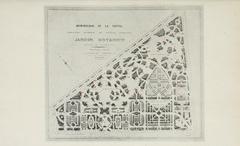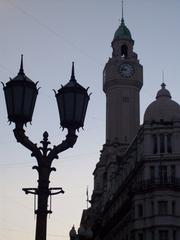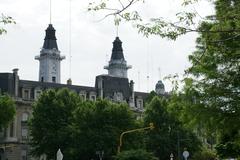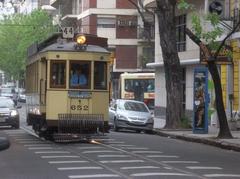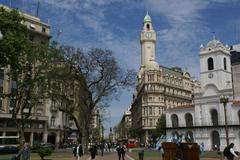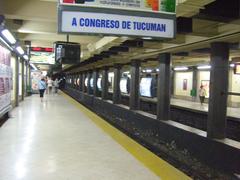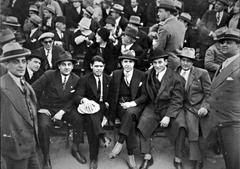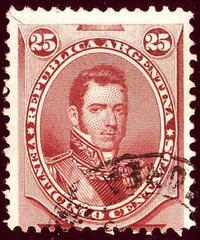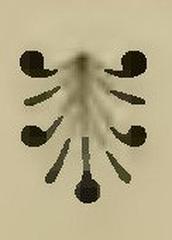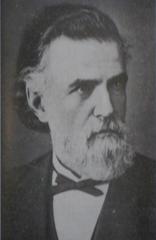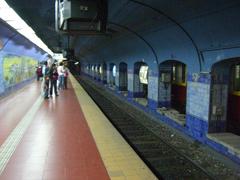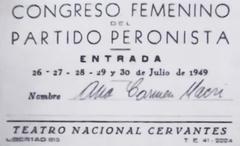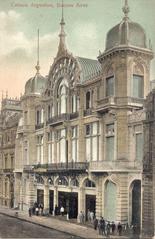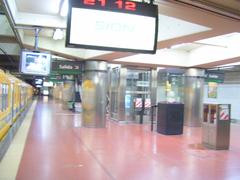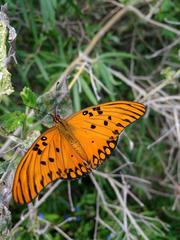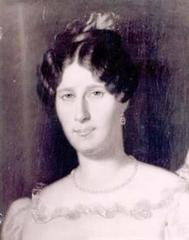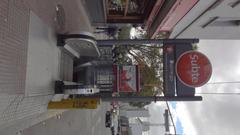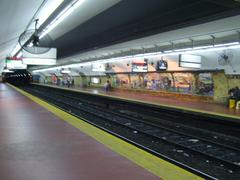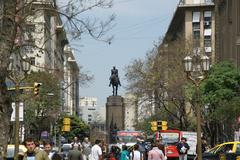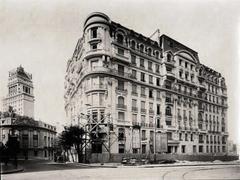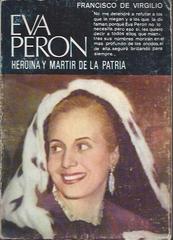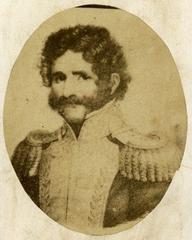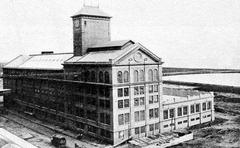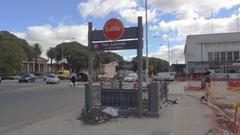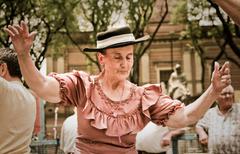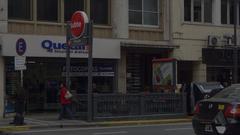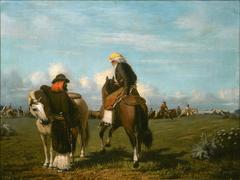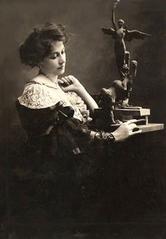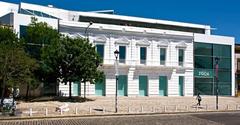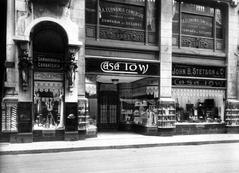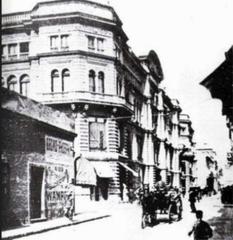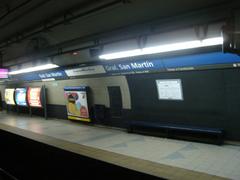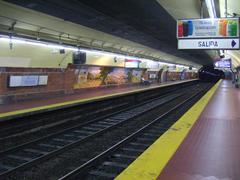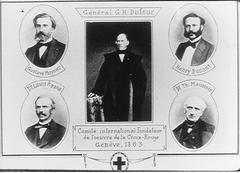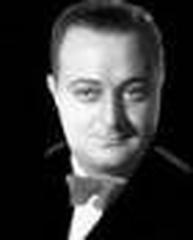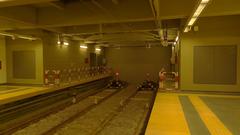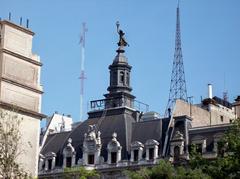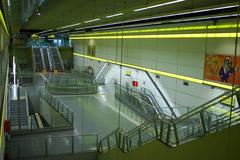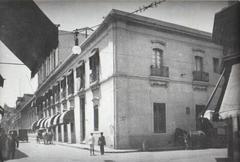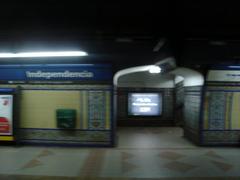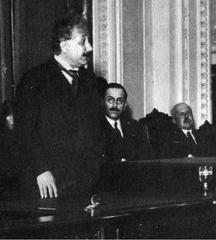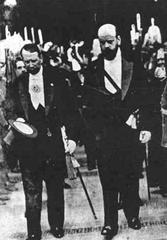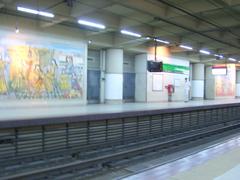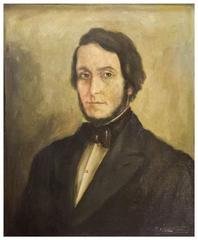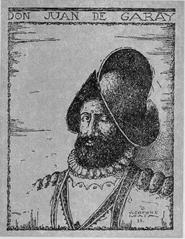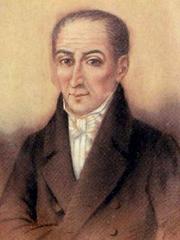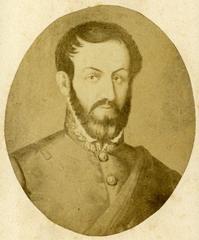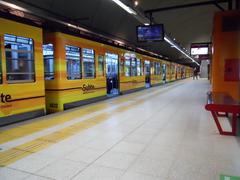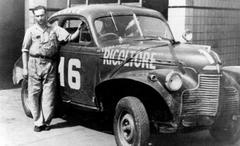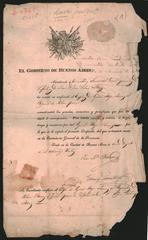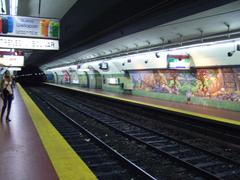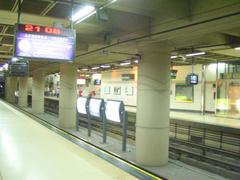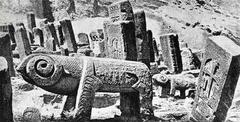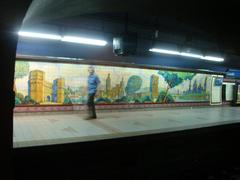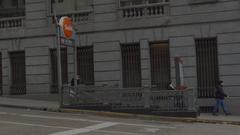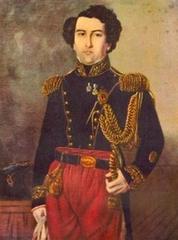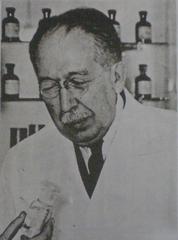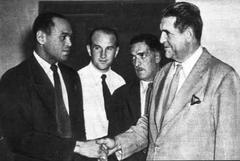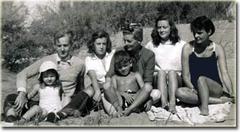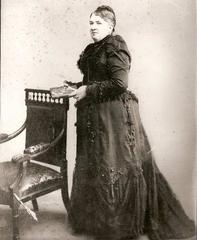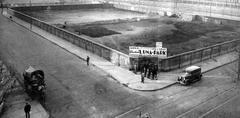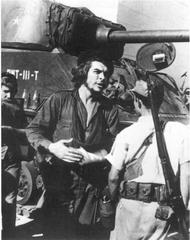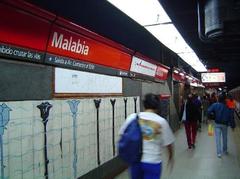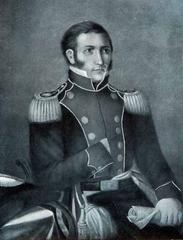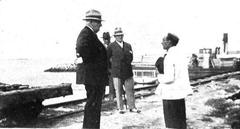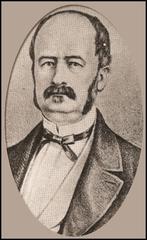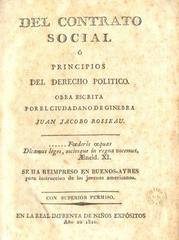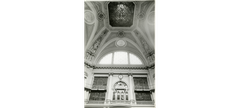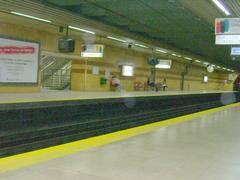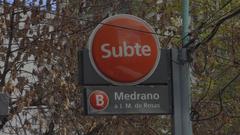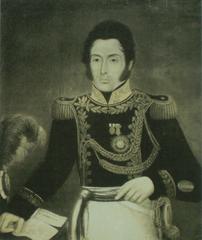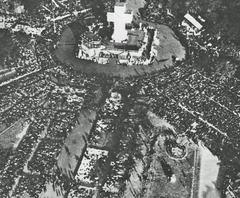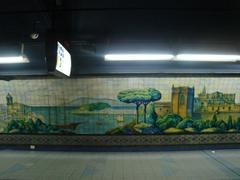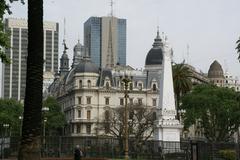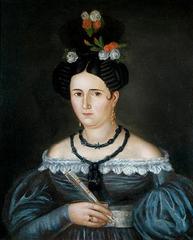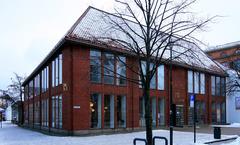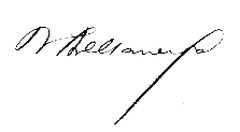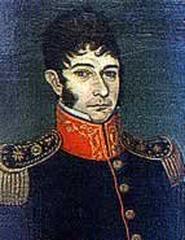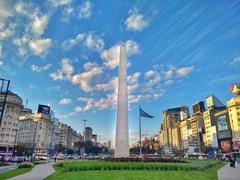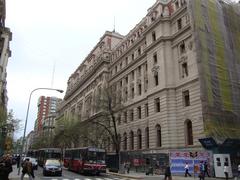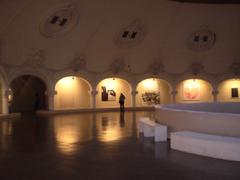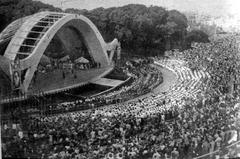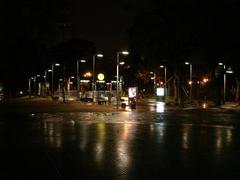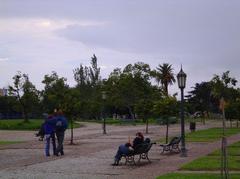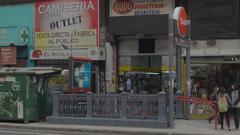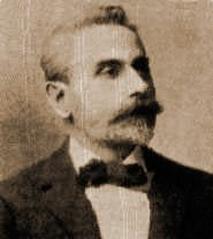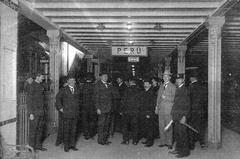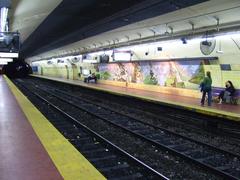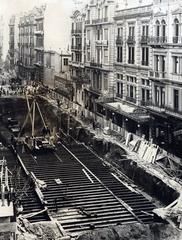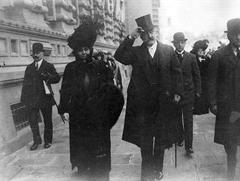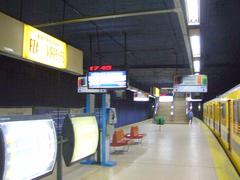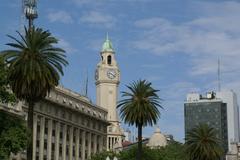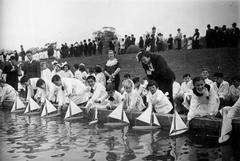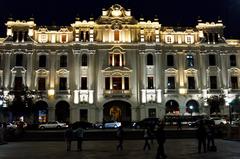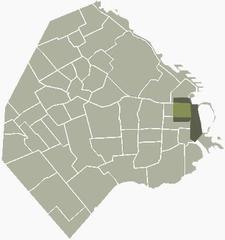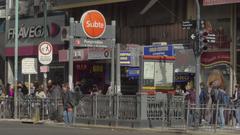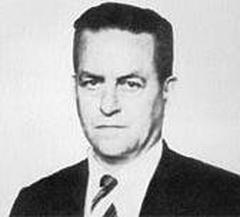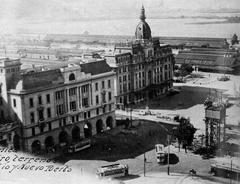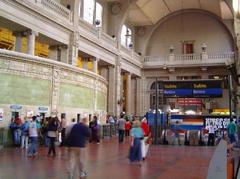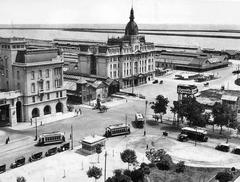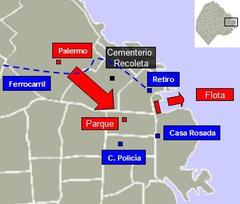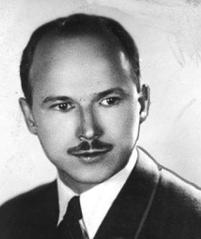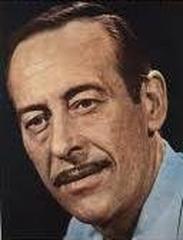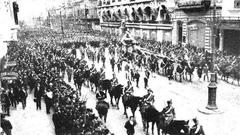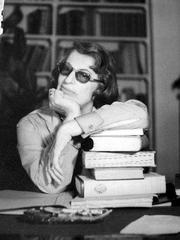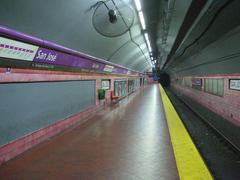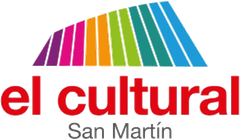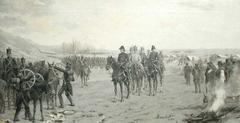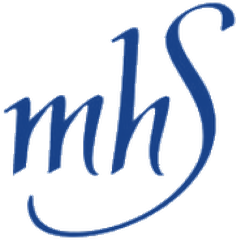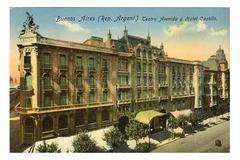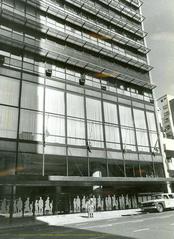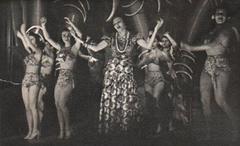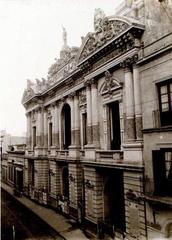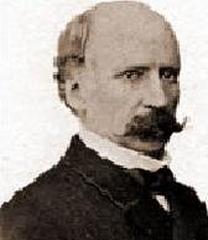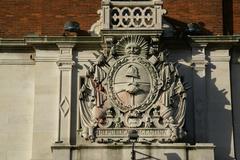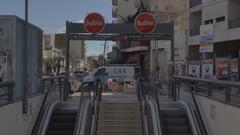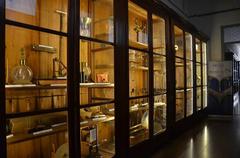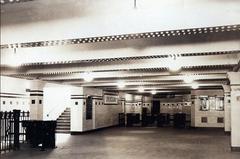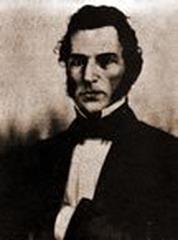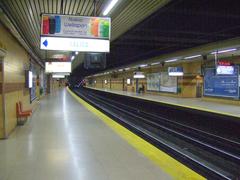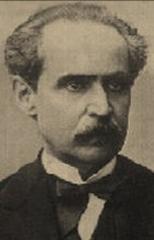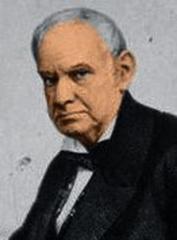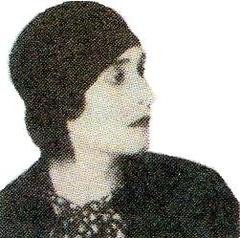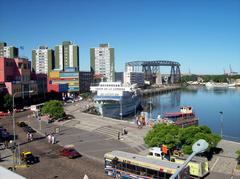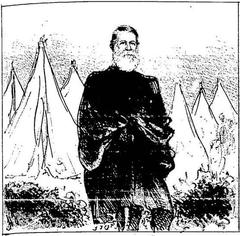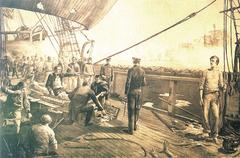Acción Vasca de la Argentina: Visiting Hours, Tickets, and Historical Significance in Buenos Aires
Date: 04/07/2025
Introduction
Acción Vasca de la Argentina stands as a vibrant testament to the enduring legacy of Basque immigration and culture in Buenos Aires. Founded in the early 20th century, it remains a cornerstone institution for preserving the traditions, language, and identity of the Basque community in Argentina. Unlike traditional museums, Acción Vasca functions as a living cultural hub—offering visitors immersive experiences through festivals, language courses, gastronomy, and community events. This comprehensive guide explores the site’s history, significance, practical visitor information, and its pivotal role in the multicultural tapestry of Buenos Aires.
For authoritative information and event updates, official resources such as the Eusko Ikaskuntza PDF, Centro Laurak Bat, and Buenos Aires Government are highly recommended.
Table of Contents
- Historical Origins and Foundation
- Evolution and Name Changes
- Mission and Activities
- Relationship with Other Basque Institutions
- Impact and Significance
- Visitor Information
- Notable Figures and Leadership
- Visual Gallery
- Frequently Asked Questions (FAQ)
- Conclusion
- References and External Links
Historical Origins and Foundation
Acción Vasca de la Argentina traces its roots to 1910, originally established as “Argentina Buru Batzar”—a filial of the Partido Nacionalista Vasco (Basque Nationalist Party). Its foundation marked the advent of organized Basque nationalist activity in Argentina, reflecting the aspirations of thousands of Basque immigrants who had settled in the region since the colonial era (Eusko Ikaskuntza PDF). Early leaders such as José María Larrea and Nemesio de Olariaga set the stage for a vibrant community institution that would adapt and grow over the decades.
Evolution and Name Changes
In 1923, the organization adopted the name “Acción Nacionalista Vasca” and later evolved into “Acción Vasca de la Argentina.” This shift in identity mirrored the changing needs and realities of the Basque diaspora, aligning with both nationalist sentiment and community integration in Argentina (Eusko Ikaskuntza PDF).
Mission and Activities
Cultural Preservation and Promotion
Acción Vasca is dedicated to the preservation and promotion of Basque language (Euskera), folklore, and traditions. The center organizes dance groups, folklore festivals, and music events—ensuring that Basque customs remain alive among new generations. Euskera classes, led by experienced instructors, are a cornerstone of this mission, nurturing both heritage learners and newcomers (Eusko Ikaskuntza PDF).
Intellectual and Political Engagement
The institution hosts conferences, lectures, and commemorative events honoring Basque historical figures and milestones. It also publishes periodicals and collaborates with the Basque press, fostering dialogue and maintaining strong ties with the Basque homeland and diaspora.
Community Outreach
Acción Vasca extends its cultural activities beyond Buenos Aires, organizing performances, workshops, and community events in cities such as Rosario, Bahía Blanca, and Villa María. These efforts have been central in sustaining Basque identity across Argentina.
Relationship with Other Basque Institutions
Acción Vasca maintains close ties with prominent Basque centers in Buenos Aires, such as Laurak Bat and the Fundación Vasco Argentina Juan de Garay. This network of institutions collaborates on festivals, educational programs, and cultural preservation, collectively enriching the city’s multicultural landscape (Centro Laurak Bat).
Impact and Significance
Demographic and Social Influence
The Basque community in Argentina is among the world’s largest outside Europe. Acción Vasca has played a formative role in nurturing this community, fostering a sense of identity, and contributing to the broader Argentine society through its members’ achievements in politics, academia, and business (About Basque Country).
Political and Historical Context
Throughout Argentina’s history, Acción Vasca has provided support for Basque exiles and served as a hub for political engagement, especially during periods of upheaval in Spain. Its commitment to democratic values and Basque rights continues to resonate with new generations (About Basque Country).
Visitor Information
Visiting Hours and Tickets
- Hours: Acción Vasca does not have standard museum hours; it generally opens for scheduled events, classes, and festivals. Associated Basque centers like Laurak Bat are typically open Monday to Friday, 10:00 AM to 6:00 PM (Laurak Bat Official Page).
- Tickets: Admission to cultural centers is usually free. Special events or workshops may require advance registration or a nominal fee.
Key Cultural Events
- Buenos Aires Celebra el País Vasco: Held annually on Avenida de Mayo, this festival features Basque music, dance, cuisine, and crafts, drawing thousands of participants (Buenos Aires Government).
- Euskera Classes and Workshops: Regularly scheduled at Acción Vasca and Laurak Bat.
- Folklore and Sports Demonstrations: Including traditional Basque dances and rural games.
Location and Accessibility
- Centers are centrally located in Buenos Aires, accessible by subway, bus, and taxi. Most venues are wheelchair accessible; contact the centers ahead of time for specific accommodation needs.
Travel Tips
- Check official websites and event calendars before visiting.
- Comfortable attire is recommended for festivals and walking tours.
- Spanish is the main language, but staff and community members often speak Euskera.
Guided Tours
- Guided tours are available during events or by prior arrangement, mainly in Spanish. English-language tours can sometimes be organized with advance notice.
Notable Figures and Leadership
Acción Vasca’s leadership has included influential Basque-Argentine figures who have shaped both the institution and the wider community. Their vision has ensured the longevity and vibrancy of Basque heritage in Argentina (Eusko Ikaskuntza PDF).
Visual Gallery
High-quality images of Laurak Bat, Juan de Garay statues, and Basque festival scenes are available on the official websites and social media channels of Acción Vasca and Laurak Bat. These visuals capture the energy and tradition of Buenos Aires’ Basque community.
Frequently Asked Questions (FAQ)
Q: What are the visiting hours for Acción Vasca de la Argentina?
A: There are no fixed visiting hours; access is through scheduled events and activities.
Q: Is there an admission fee?
A: Most events are free; some workshops may require a small fee.
Q: Are guided tours available?
A: Yes, typically during events or by prior request.
Q: Where can I learn Euskera in Buenos Aires?
A: Acción Vasca and Laurak Bat offer Euskera classes for all levels.
Q: Is the site accessible to visitors with disabilities?
A: Most centers offer accessibility accommodations; contact in advance for details.
Conclusion
Acción Vasca de la Argentina offers a dynamic gateway into Basque heritage, blending tradition and contemporary community life. Its events, language programs, and collaborations with other Basque centers provide visitors with authentic cultural experiences. Whether attending a festival, joining a dance workshop, or exploring Basque history, Acción Vasca invites you to engage with one of Buenos Aires’ most influential immigrant communities.
To enrich your visit, download the Audiala app for event schedules and guided tours, and follow Acción Vasca and Laurak Bat on social media for the latest updates.
References and External Links
- Eusko Ikaskuntza PDF
- Centro Laurak Bat
- Buenos Aires Government
- Acción Vasca Official Website
- Laurak Bat Official Page
- Juan de Garay Foundation
- About Basque Country
- Buenos Aires Tourism Official Site
- Fundación Vasco Argentina Juan de Garay
- Euskaletxeak PDF
- Euskadi Delegation in Argentina
- Buenos Aires events calendar
- EuskalKultura portal
